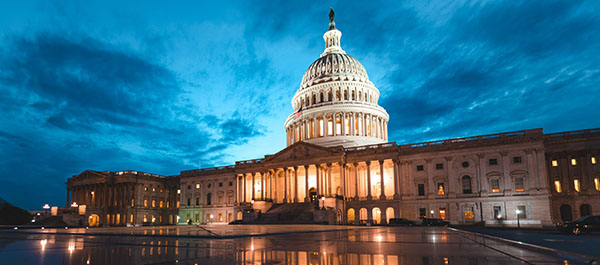Clean Water Current
Congressional Tax Reform Debate Kicks Off; Muni Bond Exemption Largely Preserved But Concerns Arise

(November 7, 2017) - Republican leadership in the U.S. House of Representatives released their comprehensive tax reform bill on November 2, kicking off what Congressional Republicans and the White House hope will be a focused effort to pass tax reform legislation by the end of the year.
A key part of NACWA's advocacy this year, in collaboration with other groups in the municipal and water sector, has been ensuring that municipal bonds maintain their tax-exempt status. NACWA is very pleased to report that the exemption was largely maintained. However, the bill included a provision that would curtain advance refunding of outstanding municipal bonds (with advance refunding bonds defined as those issued more than 90 days before the redemption date of the refunded bonds). Under current law, governmental bonds are allowed one advance refunding—enabling public issuers to take advantage of lower interest rates should they occur—and the interest on these advance refunding bonds is tax-exempt. Under the House’s proposal, interest on advance refunding bonds would be taxable. This change would kick in for advance refunding bonds issued after 2017, and could reduce the ability of clean water agencies and other municipal bond issuers to reduce financing costs over time.
NACWA has sought input from its Finance Workgroup members, and would appreciate hearing input from other members who are concerned about advance refunding – or have examples of where it has been used at your clean water agency to reduce long-term costs. Please contact Kristina Surfus. While this provision was unexpected, municipal groups are quickly speaking out against the proposal. NACWA will be reaching out to Congress in the coming days as well to express concern.
The House started marking up its bill in Committee Monday, and on Thursday the Senate will release its tax bill – which is expected to vary significantly from what is being negotiated in the House, leading to complicated negotiations should both Chambers pass their own bills as they hope.
Many other provisions in the House tax reform bill may impact local investments. For example, interest earned on new private activity bonds would no longer be tax-exempt, a surprising change in light of the Administration’s interest in public-private partnerships. The bill also alters tax credits for renewable energy, eliminating a long-term credit for solar, and changing eligibility and the value of other renewable tax incentives. Overall, the bill is projected to increase the federal deficit by $1.5 trillion over 10 years, which could lead to further pressure down the road to constrain federal funding.
The House proposal is just the starting point for debate, and NACWA will remain alert to potential impacts for clean water agencies. Please reach out to Kristina Surfus, NACWA’s Director of Legislative Affairs, to discuss.